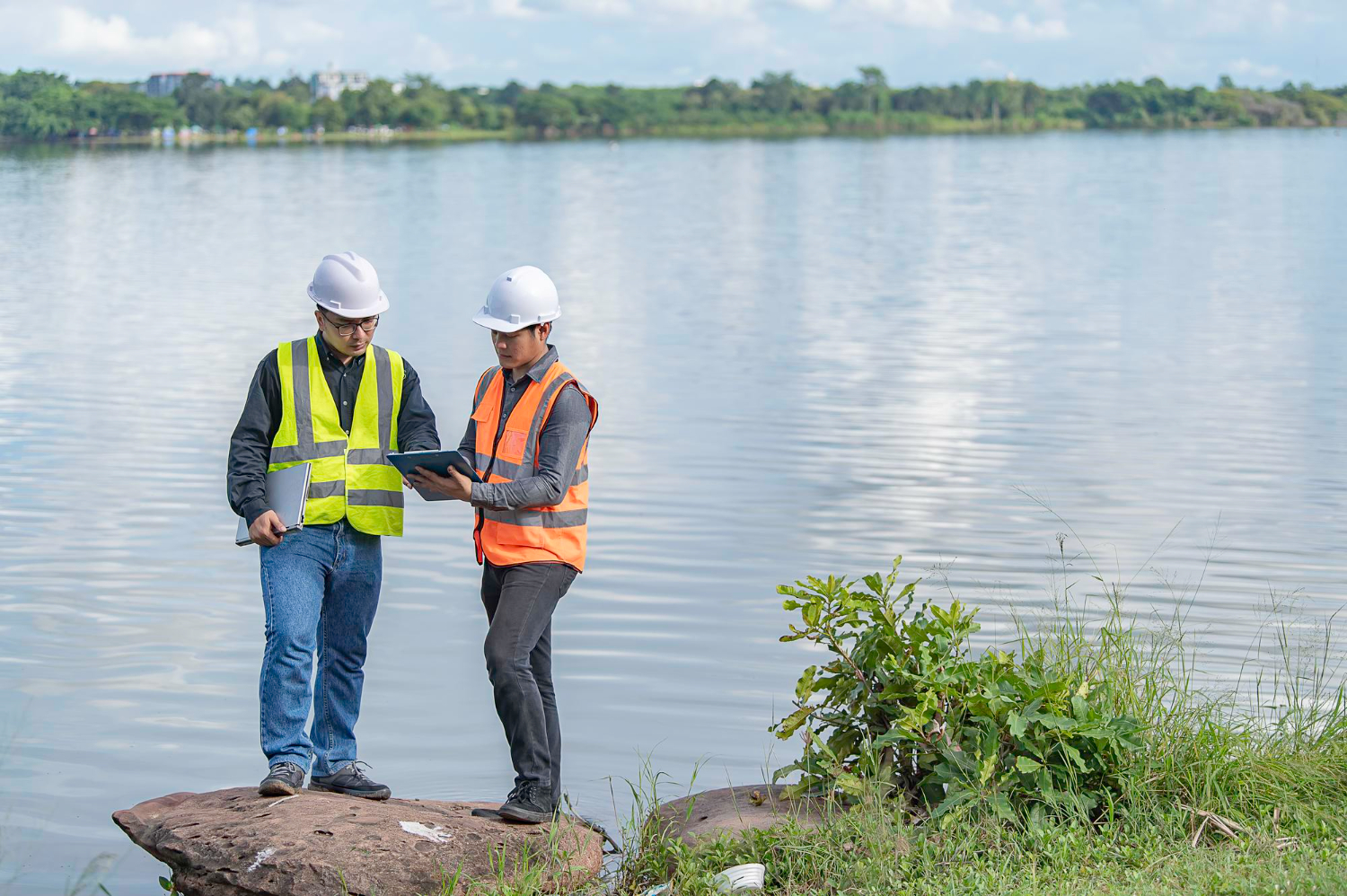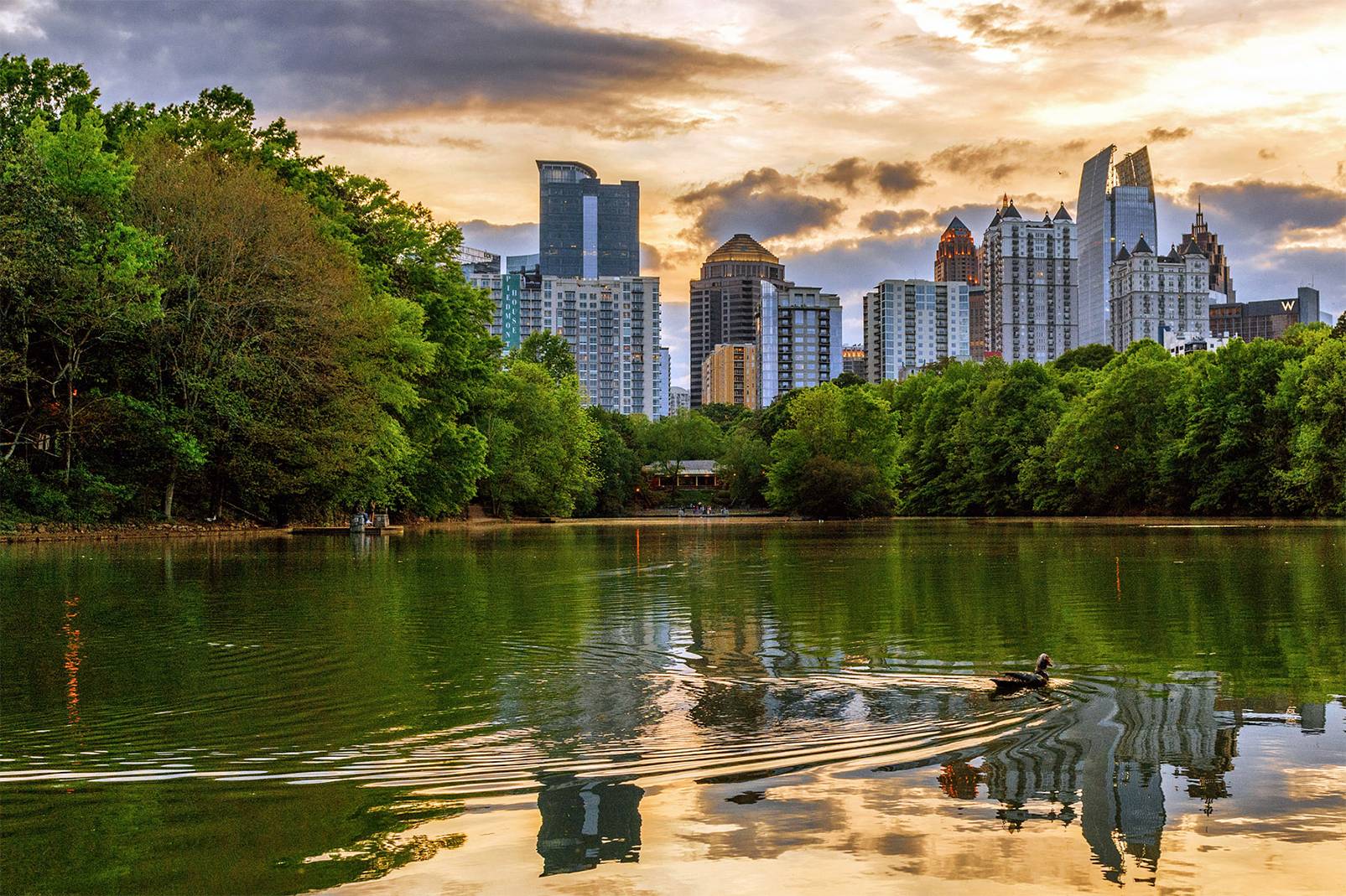
Owning or managing a lake comes with many incredible benefits. However, there are many challenges that can surface over time, and one of the most common is noticing the water level dropping or the lake becoming shallower year after year. This is a serious environmental concern that can affect water quality, fish populations, recreational use, and even nearby property values.
As the depth of a lake decreases, the water quality declines and the ecosystem becomes more unstable. There’s so much at stake when your lake is getting shallower—not only for the fish, plants, and wildlife that depend on the lake, but also for the surrounding communities. The good news is, all is not lost. With the right conservation practices, it’s possible to slow or even reverse the shallowing process.
At Aquatic Restoration, we are committed to helping lake and pond owners keep their waters healthy and sustainable. We offer a wide range of services, including lake dredging, retention pond maintenance, spillway renovation, siphon installation, shoreline stabilization, and many more. If you need help with restoring your lake or pond, we are the specialists to call for help.
One of the main reasons lakes get shallower over time is sedimentation. Every rainfall or storm event washes soil, sand, and organic material from the surrounding land into the lake. This material settles on the bottom, slowly filling in the basin. What once was a deep and thriving aquatic environment may start resembling a marsh as the years pass. Sedimentation clouds the water, smothers fish habitats, and creates the perfect conditions for unwanted plant and algae growth. This is why lake dredging is recommended every 5 to 10 years, depending on the rate of sediment buildup and the size of the lake.
Another contributing factor is nutrient loading. Fertilizers, animal waste, and even leaky septic systems allow nitrogen and phosphorus to enter the lake. At first, these nutrients act like food for aquatic plants and algae, but too much of a good thing quickly becomes harmful. Algal blooms deplete oxygen in the water when they die and decompose, stressing or killing fish. As algae and plants continue to cycle through growth and decay, they add more organic matter to the bottom, speeding up the shallowing process.

A shallower lake also warms up faster, leading to higher evaporation rates. This is especially noticeable during hot summers or drought conditions. The less water there is, the faster it evaporates, compounding the problem. Warmer water also holds less oxygen, further straining aquatic life and making it difficult for a balanced ecosystem to survive.
Invasive species can play a role as well. Certain invasive aquatic plants thrive in shallow, nutrient-rich waters and can quickly overtake a lake. They not only restrict recreational activities like boating and swimming but also disrupt native species and add even more decaying matter to the bottom. Left unchecked, invasive growth can make a lake nearly unusable.
No matter the reasons behind your lake getting shallower, it’s possible to fix the situation and restore it to good working condition. As long as you work with qualified and experienced aquatic experts, you can address the root causes effectively and prevent future problems. Aquatic Restoration is a reliable lake management company in Georgia that’s committed to preserving and rejuvenating lakes and ponds. Whether you’re dealing with sedimentation, invasive plant growth, poor water clarity, or shoreline degradation, we are here to help you restore balance and beauty to your aquatic environment. Our team combines advanced techniques with eco-friendly practices to deliver outstanding results. With over 35 years of experience, you can rely on us to deliver top-quality and cost-effective lake services.
Lake management is an integral part of keeping your lake in peak condition. It involves activities such as lake…
There are many incredible benefits that come with restoring natural lake depth. Not only does it improve water quality…
When it comes to maintaining healthy water bodies, there are two primary methods that are often used: dredging and pond…
There’s peace of mind in knowing you have a reliable detention pond on your property. These man-made ponds temporarily hold…
Owning waterfront property is a dream come true for many people. Everything from the stunning views to a relaxing lifestyle…